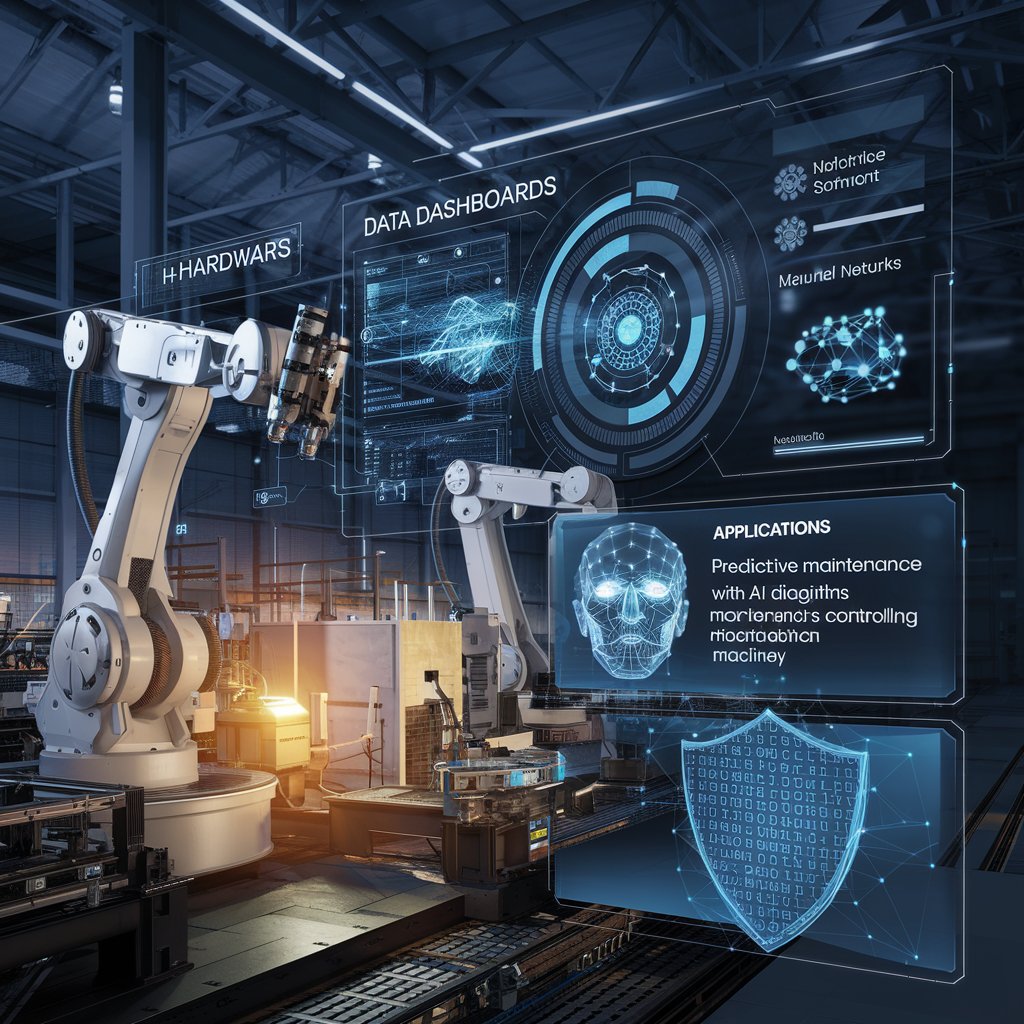Artificial Intelligence (AI) in manufacturing is revolutionizing the way industries operate, bringing advanced automation, optimization, and decision-making capabilities to the production floor. AI-driven technologies like machine learning (ML), natural language processing (NLP), and computer vision are being integrated into manufacturing processes to enhance productivity, reduce errors, and enable predictive maintenance. From automating repetitive tasks to improving product quality and supply chain management, AI is becoming a key enabler of smart manufacturing. The adoption of AI technologies allows manufacturers to improve operational efficiency, reduce costs, and meet the increasing demand for high-quality products in a competitive global market.
Artificial Intelligence in Manufacturing Market Size and Share
The artificial intelligence in the manufacturing market size is estimated to reach USD 20.8 billion by 2028 from 3.2 billion in 2023. The market is expected to grow at a CAGR of 45.6% between 2023 to 2028. The growth is driven by the increasing adoption of AI-powered solutions for automation, predictive maintenance, and quality control across industries like automotive, electronics, and heavy machinery. North America holds the largest share of the AI in manufacturing market, followed by Asia-Pacific, which is expected to experience the highest growth due to rapid industrialization and technological advancements.
Artificial Intelligence in Manufacturing Market Current Trends
Several key trends are shaping the AI in manufacturing market, including:
- AI-Powered Predictive Maintenance: AI is used to monitor equipment in real time, predict potential breakdowns, and prevent costly downtime.
- Smart Factories: AI is enabling fully automated smart factories where robots and machines can communicate and coordinate processes with minimal human intervention.
- AI-Driven Quality Control: Machine learning algorithms are being used for real-time quality checks, reducing defects and improving product consistency.
- Supply Chain Optimization: AI is optimizing supply chain operations by predicting demand, managing inventory, and automating logistics.
- Sustainability Initiatives: AI is being used to reduce waste and energy consumption, supporting sustainability goals in manufacturing.
Download PDF Brochure @ https://www.marketsandmarkets.com/pdfdownloadNew.asp?id=72679105

Artificial Intelligence in Manufacturing by Segmentation
1. Offering (Hardware, Software, Services)
- Hardware: This includes AI-enabled machinery, robotics, sensors, and edge devices integrated into manufacturing processes.
- Software: AI platforms and software solutions are used for data analytics, predictive modeling, and process optimization.
- Services: Services include AI integration, consulting, training, and maintenance provided by AI solution providers.
2. Technology (Machine Learning, Natural Language Processing)
- Machine Learning (ML): ML is widely used in predictive maintenance, process optimization, and quality control. It helps machines learn from data and make autonomous decisions.
- Natural Language Processing (NLP): NLP is employed in manufacturing for human-machine interaction, enabling operators to give voice commands or interpret data in natural language.
Impact of AI on Manufacturing Industry
AI is transforming manufacturing in several impactful ways:
- Increased Efficiency: AI automates repetitive and manual tasks, speeding up production and reducing human errors.
- Enhanced Decision-Making: AI enables manufacturers to make data-driven decisions, improving everything from resource allocation to production schedules.
- Cost Reduction: AI reduces operational costs by minimizing machine downtime, optimizing energy consumption, and reducing waste.
- Improved Flexibility: AI enables greater flexibility in manufacturing by allowing machines to adapt quickly to changes in demand or product specifications.
Key Industry Players in Artificial Intelligence in Manufacturing Companies
Several leading companies are driving the adoption of AI in manufacturing:
- Siemens AG: Offers AI-driven automation solutions for manufacturing operations, focusing on digital twins and smart factories.
- IBM Corporation: Provides AI-powered solutions for predictive maintenance, supply chain optimization, and quality control.
- General Electric (GE): Specializes in industrial AI applications, including machine learning and predictive analytics for manufacturing equipment.
- Microsoft Corporation: Delivers AI tools and cloud services that help manufacturers optimize operations and improve supply chain efficiency.
- NVIDIA Corporation: Supplies AI hardware, such as GPUs, for advanced computing in AI-driven manufacturing applications.
Future Applications of AI in Manufacturing
AI will continue to play a transformative role in manufacturing. Future applications include:
- Hyper-Automation: AI will enable fully autonomous factories where machines handle end-to-end processes without human intervention.
- Collaborative Robots (Cobots): Cobots will work alongside human operators, using AI to enhance productivity and safety.
- AI-Powered Supply Chains: AI will predict disruptions in the supply chain, enabling manufacturers to take proactive measures to avoid delays.
- AI for Customization: Manufacturers will use AI to create highly customized products at scale, meeting individual customer preferences efficiently.
Frequently Asked Questions (FAQ)
1. What is AI in manufacturing?
AI in manufacturing refers to the use of machine learning, robotics, and data analytics to automate and optimize production processes, improve efficiency, and reduce errors.
2. What are the key benefits of AI in manufacturing?
AI helps manufacturers improve efficiency, reduce operational costs, enhance quality control, and enable predictive maintenance, leading to fewer breakdowns and optimized workflows.
3. Who are the major players in the AI manufacturing market?
Key players include Siemens AG, IBM, General Electric, Microsoft, and NVIDIA, all of which provide AI-driven solutions for automation, data analytics, and process optimization in manufacturing.
4. What are the future trends in AI for manufacturing?
Future trends include hyper-automation, AI-driven supply chains, collaborative robots (cobots), and AI-enhanced customization of products.
5. What challenges face AI adoption in manufacturing?
Challenges include high initial costs, data security concerns, and the need for a skilled workforce to manage and implement AI technologies effectively.